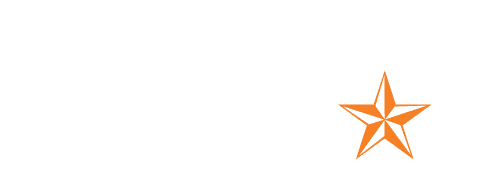About Electrical Engineering - Bachelor's (b.s.) in University of Texas At Arlington
Electrical engineering offers perhaps the most versatile career path in the engineering portfolio. Electrical engineering is a broad field that includes power systems, control systems, microelectronics and nano electronics, microprocessors and computer networks, telecommunications, remote sensing, signal processing, machine learning, medical devices, optics/photonics and other emerging technologies. The Bachelor of Science in electrical engineering (BS) degree program will prepare students for a satisfying career in next-generation communication systems (5G and beyond), internet of things, machine learning to support autonomous systems, cyber-physical systems, power distribution and energy storage, remote sensing and imaging, or medical delivery and new diagnostic tools. The program has extensive hands-on and system-level integrative projects that enable students to explore practical and state-of-the-art applications of electrical engineering. The Electrical Engineering Department offers ample opportunities for students to conduct undergraduate research in cutting-edge research projects.
ABOUT THE PROGRAM
Students will gain fundamental knowledge and practical skills in analyzing and designing systems that involve electrical signal and energy, which cover nano-scale biosensor and integrated circuits to transcontinental scale cyber-physical systems. In addition to technical know-how, students will also gain leadership and communication skills through project and teamwork activities.
Electrical engineers must be prepared to apply fundamental concepts in the application of new technologies and to contribute to the growth of these technologies. Our “career-ready” program has a streamlined curriculum that provides a strong technical foundation, hands-on engineering labs in every semester, and system-level integrative projects (including projects sponsored by high-tech companies) at the sophomore, junior, and senior levels. Students will apply the knowledge and skills gained in the classroom and hands-on labs in real-world settings through internships or co-ops and system level integrative projects.
The program has been updated to provide a streamlined, flexible experience for students with project-based learning at each level. The curriculum requires 125 credit hours of course work and has five focus areas: energy and power, electronics and photonics, control systems, communications and signal processing, and computers and digital circuits. Students have the flexibility to select courses in these five areas to provide breadth and depth in their areas of interest. Transfer students my receive credit for courses listed in the Texas Higher Education Coordinating Board’s Field of Study Curriculum.
CAREER OPPORTUNITIES
- Engineering design
- Manufacturing
- Technical training
- Sales and marketing
- Project/technical lead
DEGREE OPTIONS
B.S. in electrical engineering, on-campus
- Choice of five technical electives from one or more EE focus area
- Option for BSEE with Certificate in Unmanned Vehicle Systems
Fast Track BS to MS program in electrical engineering
Three shared courses between the BS and MS programs allows students to complete a master’s degree with just 21 additional hours.
Direct BS to PhD program in electrical engineering
Requires 30 credit hours of graduate-level coursework beyond the bachelor’s degree, in addition to the PhD requirements.
Academic qualification equivalents
Please be advised that UTA is test score optional for admission through summer 2023. If you apply for admission without these test scores your application will be evaluated based on high school records such as GPA, class rank, courses taken and other relevant criteria. However, test scores can help in determining admissions decisions and scholarship opportunities.
NON-TRADITIONAL SECONDARY EDUCATION (NON-RANKING HIGH SCHOOLS, HOMESCHOOL & GED)
In accordance with Texas Senate Bill 1543, if you present evidence of the completion of a nontraditional secondary education without an official class rank, UTA will assign a class rank for you. This assigned class rank will be comparable to the average class rank of other applicants with equivalent SAT or ACT scores. Once the rank has been assigned, students must meet requirements above. UTA requires official transcript or proof of GED to show completion of a non traditional secondary degree.
English language requirements
Submit official TOEFL test scores if you are from a non-native English speaking country. The minimum acceptable TOEFL score is 550 for the paper based test, and 79 on the internet based test. For IELTS we require a minimum score of 6.5. UTA also accepts Duolingo with a required minimum score of 105.
University of Texas At Arlington Highlights
| University Type |
Public |
| Establish Year |
1895 |
| Location of Campuses |
Urban |
| Academic Calendar |
Semester Based |
| Campus accommodation |
Yes |
| Tuition Fee |
11968 USD |
| English Proficiency Tests |
IELTS and TOEFL |
| Graduation Rate |
51% |
| Acceptance Rate |
83% approximately |
| Financial Aid |
Available (Aids, Grants, and Scholarships) |
University of Texas Arlington Cost of Attendance
| Expenses |
Undergraduate (in USD) |
Graduate (in USD) |
| Tuition fee |
11,968 |
10,828 |
| Room & Board |
10,516 |
11,540 |
| Books and Supplies |
1,150 |
1,150 |
| Transportation |
3,066 |
3,066 |
| Health Insurance |
1,000 |
1,000 |
| Personal Expenses |
1,800 |
1,900 |
| Total |
29,500 |
29,484 |

